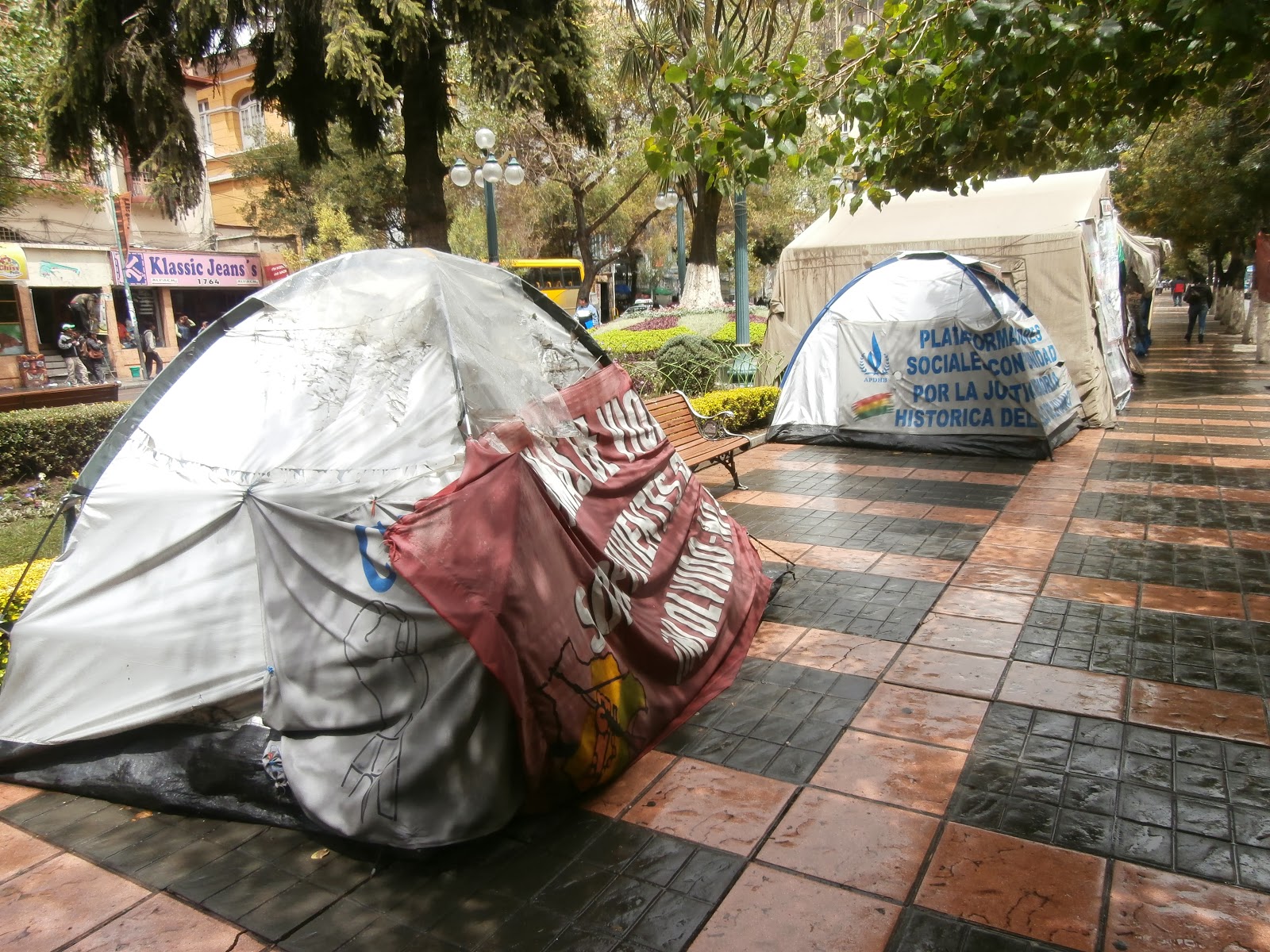It is probably the widest thoroughfare in the largest city in Bolivia and yet it is a village. I have walked along it many times during my stay here. It is the walkway between my hotel and the tourist streets that begin at Sagarnaga. I see the same people every day in the same positions. Begging in the same way or selling the same things.
I could not leave Bolivia without walking along it one more time, up one side and down the other, but then I decided to cheat. My friend had taken me for a ride in a micro taxi, the small buses, that are crammed with people during every run they make. Labels on the windows say where the bus is heading. You shout and wave your hand to jump on and shout and stand up to get off.
I decided to try a journey by myself.
My journey cost 1 Boliviana. I paid more because I did not have small enough change. I shouted stop, at the San Cristoforo church, and I got off and walked down El Prado back to my hotel.
These are some of the people that I saw.
Rosenda is a beggar from El Alto. She comes to the Prado every day and sits outside Alexander Coffee. Every day we play the same game. I give her money and ask if I can take her photo. She says yes. She has my money in her hand, has inspected it and is smiling, and just as I am about to take her photo she dives inside her hat. Now when she sees me coming she shouts, ' photo', and laughs.
Carmelo. The biro salesman. I buy pens from him whenever I pass. He is 49 and looks 104. He worked in a factory in La Paz but was injured and cannot work there any more. He will get a pension of £25 a month when he is 64, but until then he is working as a street vendor. The life expectancy for men in La Paz is 65. I did not tell him that.
Davide shining even more shoes.
The political protestors. I have never seen them, but they never move their tents.
Exuberant Santos, the peeler, shaker and maker of orange fruit drinks. I never buy anything from her and she still smiles at me and shouts, buenas.
Ori, or that is how it sounds, and her shy sister. Cheese sellers from the Altiplano who bring their cheese to the Prado to sell. I cannot pass her without her asking me to buy cheese. I say no and she says to me, cows' milk, very good for you. Same conversation, same structure, every day.
I do not know if I will come back to Bolivia. I believe I might. It has had a profound effect upon me. One that I never expected. Bolivians are like a mass of the inexperienced struggling against the political odds. It seems as a society they have been doing it their own way for years. The indigenous keeping themselves to themselves, keeping to the land and the fields. The middle classes playing against world power players like the United States, and not always faring that well. It is a society overtly in evolution. Tourism is an unexploited virginal resource. Never again I believe will I visit somewhere with this degree of originality, and I have no doubt about it, where ever I wander in this world these are people I will never forget.









No comments:
Post a Comment